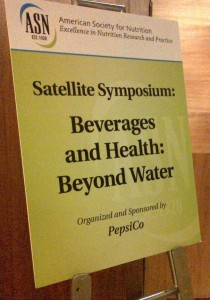Betting on Herbalife and hedging the bet
Skeptic of the value of dietary supplements that I am, I cannot help feeling sorry for Herbalife.
The company sells protein shakes and snacks, vitamins and dietary supplements, and energy and fitness drinks which, it says, “combined with healthy eating and exercise, can help you lead a healthy, active life.”
Yes indeed, healthy eating and exercise will do that for you every time.
But Herbalife has become the victim of a bizarre hedge fund bet and its consequences.
In what is one of the most blatant conflicts of interest besetting a food product, a hedge fund manager, William Ackman, made a billion dollar “short” bet that Herbalife’s stock would fall.
When the stock did not do so immediately, Mr. Ackman set out to destroy the company’s reputation to force its stock down.
He even got members of Congress, including Senator Edward Markey (Dem-Massachusetts) to call for an investigation of the company’s marketing practices, an action that caused a 14-point drop in the stock.
This decidedly unsavory story was the subject of a New York Times investigative report yesterday: “Staking $1 Billion That Herbalife Will Fail, Then Lobbying to Bring It Down.”
The company has grown into a global powerhouse, with a worldwide team of more than three million so-called members and distributors who operate as independent contractors through a system that rewards many of them not only based on actual sales, but also on their ability to recruit more distributors.
The sales tactic, popular with many nutritional supplement companies, has frequently been the target of criticism. In 1986, California authorities issued an order prohibiting Herbalife from making false claims about the weight-loss powers of its nutritional drinks.
Herbalife reported sales of $4 billion in 2012 and is sold in more than 90 countries by distributors who earn profits on product sales and additional commissions from a “multi-level marketing” compensation structure.
Ackman argues that this is a pyramid scheme that particularly disadvantages Hispanic distributors and customers. Other hedge funds disagree and have placed “long” bets on Herbalife.
This is food politics at a breathtaking level of income. The Times story is well worth a look.



